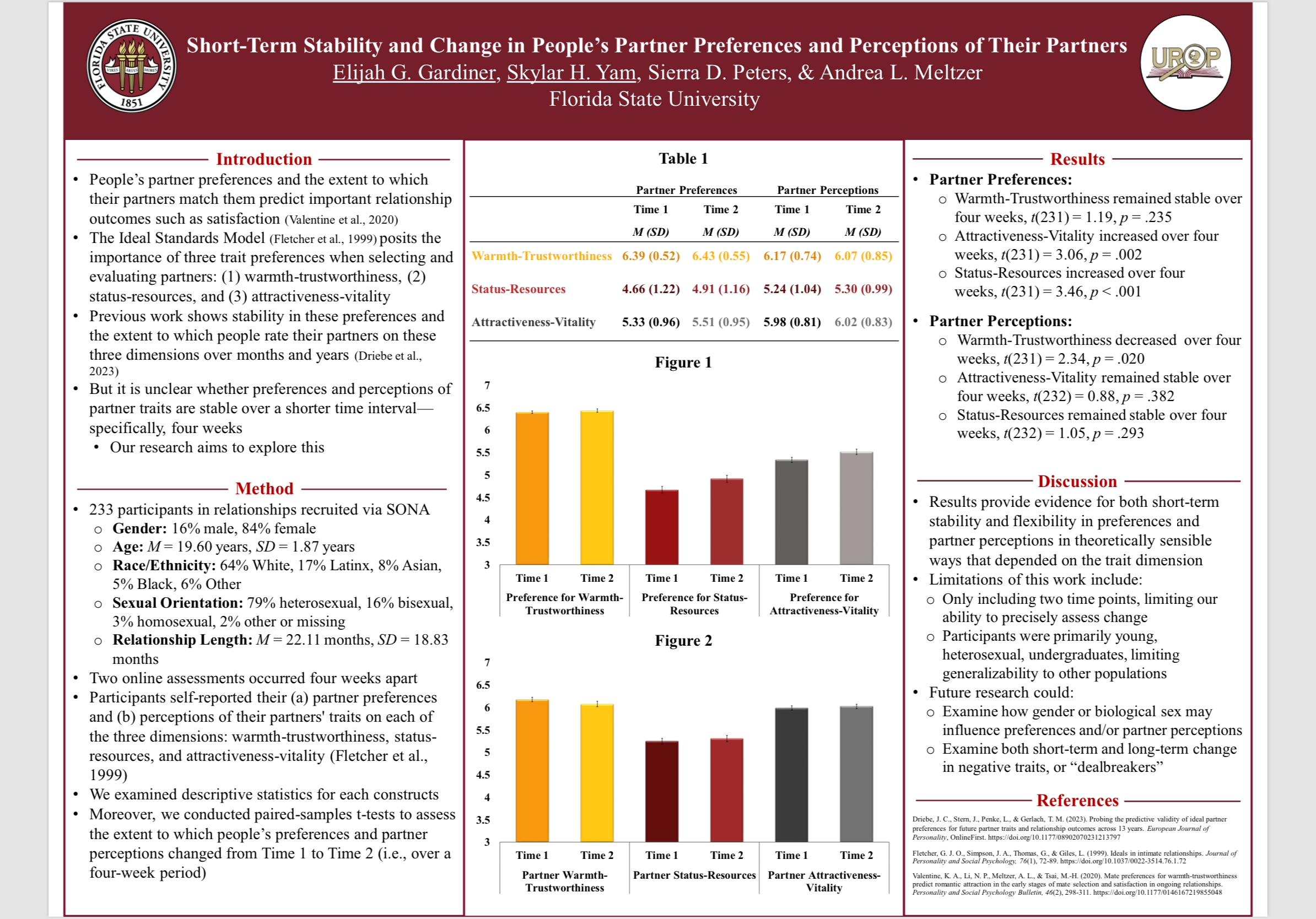Research Symposium
24th annual Undergraduate Research Symposium, April 3, 2024
Elijah Gardiner Poster Session 4: 2:45 pm - 3:45 pm /114

BIO
My name is Elijah Gardiner, I am psychology student and hopeful social work student in the fall. I am a proud member of the Marching Chiefs. I plan on continuing in research to hopefully go on through graduate school. I hope to work with the military veteran population in mental health services in whichever way my talents best reach them.
Short-Term Stability and Change in People’s Partner Preferences and Perceptions of Their Partners
Authors: Elijah Gardiner, Sierra PetersStudent Major: Psychology and Social Work NFA
Mentor: Sierra Peters
Mentor's Department: Department of Psychology Mentor's College: Florida State University Co-Presenters: Skylar Yam
Abstract
There is an expanding body of literature examining people’s ideal partner preferences and the extent to which their partners’ traits match those preferences, which has been shown to predict relationship outcomes such as satisfaction (Fletcher et al., 1999). Our research aims to investigate whether people’s preferences and/or their perceptions of their partners’ traits are relatively stable or change over time. Previous work has found that preferences and partner perceptions remain largely stable over the long term (Driebe et al., 2023). Nevertheless, it remains unclear whether these traits are malleable across shorter time intervals, and this was the goal of the present research. In pursuit of this goal, we recruited 233 participants in relationships for an online study in which participants reported their preferences and their partner perceptions twice—four weeks apart. We used bivariate correlations, descriptive statistics, and paired-samples t-tests to examine stability and change in preferences and partner perceptions from Time 1 to Time 2. We found that preferences for attractiveness-vitality and status-resources increased, whereas preferences for warmth-trustworthiness did not change. Preferences for warmth-trustworthiness appeared to demonstrate a ceiling effect across both assessments, suggesting participants may highly and stably value this trait in partners. Moreover, whereas perceptions of partners’ more objective traits (i.e., attractiveness and status) did not change, perceptions of partners’ more subjective traits (i.e., warmth) were malleable; specifically, they decreased. Together, these findings provide evidence for stability and change in preferences and partner perceptions in theoretically sensible ways.
Keywords: Psychology, Social Psychology, Relationships


